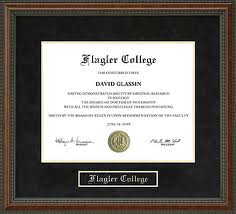
Stanford conventional v. organic study a pile of crap.
Sep 27th
The question, really, is how could such a stellar research institution as Stanford U. publish such a pile of crap? Analyzing 237 existing studies and determining that organic fruits and vegetables are no more nutritious than conventional (read: industrial agriculture). Actually the study seems more a hack job to pay a favor to Big Ag donors, although the researchers made a point early that internal funds were used to fund the work. Does that raise your suspicions a bit?
In the first place, they were almost certainly wrong. A number of recent studies have indicated organic produce has 10-30% more nutrients than conventional.
If they were trying to contribute to the body of knowledge, why not look into the environmental costs of industrial agriculture, such as pesticides in the water and air, the medical costs of workers exposed to such toxins.
Why ignore a whole other level of heath benefits of phytochemicals which are much more prevalent in organic produce because industrial agriculture intensive application of chemical fertilizers, pesticides, herbicides and heavy watering have depleted the soil of nutrients need to produce phytochemicals.
How important are they?
Phytonutrients are nutrients derived from plant material that have been shown to be necessary for sustaining human life. Phytochemicals are non-nutritive plant chemicals that contain protective, disease-preventing, compounds. Their role in plants is to protect plants from disease, injuries, insects, drought, excessive heat, ultraviolet rays, and poisons or pollutants in the air or soil. They form part of the plants immune system.
Although phytochemicals are not yet classified as nutrients, substances necessary for sustaining life, they have been identified as containing properties for aiding in disease prevention. Phytochemicals are associated with the prevention and/or treatment of at least four of the leading causes of death in Western countries – cancer, diabetes, cardiovascular disease, and hypertension. They are involved in many processes including ones that help prevent cell damage, prevent cancer cell replication, and decrease cholesterol levels.
So—pretty damn important. But apparently not to the Stanford researchers.
But Big Ag got it’s headline, and that’s what’s important.

Flagler College releases economic impact study
Sep 27th
The economic impact study was produced for the college by EconImpact LLC of Louisville, Ky.,  one of the leading providers of economic impact studies for private colleges. The purpose of the report was to detail the ways in which Flagler College contributes both directly and indirectly to the local economy.
one of the leading providers of economic impact studies for private colleges. The purpose of the report was to detail the ways in which Flagler College contributes both directly and indirectly to the local economy.
According to the report, during the 2010-2011 fiscal year, Flagler College contributed $218 million to the Greater Jacksonville area, including St. Johns, Duval, Flagler, Baker, Clay and Nassau counties. The college, along with its employees, students and visitors, were responsible for $179 million; alumni contributed $24 million in increased earnings and $12 million in social benefits due to positive lifestyle choices.
The City of St. Augustine treasury received a $343,214 net benefit due to the presence of Flagler College. St. Johns County received a $2.7 million net benefit.
Some other highlights of the report:
• The college provided full and part-time employment opportunities for 412 people.
• There are 3,045 working Flagler alumni in the Metro Jacksonville area.
• The Flagler College community contributed $188,482 in community service activities in 2011: $101,764 by Flagler students and $86,718 by Flagler employees. Flagler College students participated in 7,428 hours of community service in Metro Jacksonville.
• Visitors who came to St. Augustine because of Flagler College brought more than $18 million in new money to Greater Jacksonville in 2011
• The direct spending by the college, its employees, students and visitors was $78 million. This money was spent and re-spent several times in the community. The amount of the turnover was $100.7 million in 2011.
“The college produces alumni who earn more than individuals who did not complete a degree in higher education,” said Kevin Stokes, who wrote the final study. “The college provides employment opportunities, not only through jobs on campus, but also through jobs generated by business the college and its members conduct locally.”
For the full report, visit http://www.flagler.edu/news/current_news/FLAGLER-ECONOMIC-IMPACT-REPORT-2012.pdf
Source: Flagler College

Constantine Santas to examine the films of David Lean
Sep 27th
 Lean has long been recognized as one of the greatest film directors of all time, known for such classic epic films as “The Bridge on the River Kwai,” “Lawrence of Arabia,” “Doctor Zhivago” and “A Passage to India.”
Lean has long been recognized as one of the greatest film directors of all time, known for such classic epic films as “The Bridge on the River Kwai,” “Lawrence of Arabia,” “Doctor Zhivago” and “A Passage to India.”
On Wednesday, October 17 at 7 p.m. Dr. Constantine Santas will discuss his latest book “The Epics of David Lean” in the Gamache-Koger Theater in the Ringhaver Student Center at Flagler College. Santas is professor emeritus and former chair in the Flagler Department of English. He is also the author of “Responding to Film” and “The Epic in Film: from Myth to Blockbuster.”
Santas has long been fascinated with the epic film and with Lean’s work in particular. And with good reason: widely regarded as one of cinema’s most accomplished directors, David Lean twice received the Academy Award for best director, and two of his films, “The Bridge on the River Kwai” and “Lawrence of Arabia” won the Oscar for best picture. Both are featured on the American Film Institute’s Top 100.
But despite the awards and accolades for these motion pictures, many critics often look more favorably upon the smaller films that Lean produced earlier in his career, and in recent years his reputation as a director has diminished. In his newest book, Santas seeks to restore these now undervalued epics to the elevated esteem they once held. He argues that the epics show a progression and refinement of Lean’s work and that they are thematically broader and feature more complex characterization than his earlier films. In his talk at Flagler, he will provide background material on the production of each epic; examine insights into structure, characters, techniques, and themes; and look into the relationship between the films and their literary sources.
“The idea for this book started back in the 1990s, when I read a paper on ‘The Bridge on the River Kwai,’ at a Flagler Colloquium, sponsored by the English Department, under Professor Carl Horner,” remembers Santas. “I was drawn by the artistic values of the epics of David Lean, several of which I taught in my film classes regularly. One particular aspect of the epics that gave me food for thought was that all of them were derived from literary sources. That fact motivated me to connect literature, T.E. Lawrence’s “Seven Pillars of Wisdom,” for instance, which became the basis for “Lawrence of Arabia,” with film studies.”
Santas credits an ongoing fascination with the epics, as well as the assistance of the Flagler community, with helping him to write the book. “I believed that there were universal values in all the epics, and I was more convinced that this was so as I progressed in my research, considerably aided by the librarians at Flagler College,” he says. “I express my gratitude to them, to my colleagues, and especially to my students at Flagler over the years for keeping the flame alive.”
The reading and discussion will be held in the Gamache-Koger Theater at the Ringhaver Student Center at 50 Sevilla Street. The event is free and open to the public, but seating is limited and is on a first-come, first-served basis. If you are a person with a disability and need reasonable accommodations, please contact Lynn Francisco at 904-819-6460. Sign Language Interpreters are available upon request with a minimum of three days’ notice. Call (904) 819-6339 or visit www.flagler.edu/our-community/events/writers-in-residence for more information.
Source: Flagler College






















